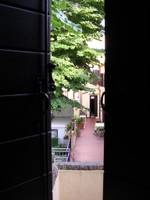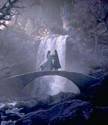
About the Catholica
Previous Posts
Toscana and the Refuges of LightThe Anti-Narnia
Ballad of the White Horse
Red and Black (at the OCP Cafe)
Dvorâk
Polyphonic Bliss
Best. Motet. Ever.
Syndication

News
Seattle CatholicCatholic Exchange
Crunchy Catholicism
Being CatholicCaelum Et Terra
Mystical Rose Herbals
Mary Gardens
Tridentine Tiramisú

St-Martin de Bréthencourt
Chartres Pilgrimage
(muchas fotos!)
Campos Photos
LMSEW Photos
Catholic Artists Today

Official Passion Site
Smallpax Guild
Nicholas Wilton Music
StudiObrien
Via Rosa Rosaries
Regina Doman
Poetry of Pavel Chichikov
Free Literature On the Web

Project Gutenberg
G.K. Chesterton
On Nothing
On Something
First and Last
Europe and the Faith
Belloc - Poetry
More Belloc Poetry
John Henry Newman
Christopher Dawson
Frederico GarcÃa Lorca
Tolkien

Romantic &
Imaginative Theology
Council of Elrond
Anke Eissmann's Art
Angels and Elves
Christianity and Middle Earth
Coulombe Essays
Ardalambion
Gwaith i Pheddain
Arthrand Board
Crazy-Go-Nuts
Homestar RunnerStrindberg & Helium
SuperPope Anime
The Onion Dome
Blogs I Like

Alle Psalite
Andrew Cusack
Angry Twins
Cacciaguida
Church of the Masses
Curt Jester
Dappled Things
Devout Life
Dignare Me Laudare Te
Erik's Rants & Recipes
Flos Carmeli
Give Tongue
Hallowed Ground
The Idyllist
Inn at the End of the World
Jade's Trick
Jelly-Pinched Theatre
Old Oligarch
Open Book
Orthonormal Basis
Sancta Sanctis
Secret Agent Man
Shrine of the Holy Whapping
Video Meliora
Vivid
The Western Confucian
Zadok the Roman
Christendom Blogs
Charlemagne's PalaceThe Christendom Commons
Meet Virginia
Destination: Order
Enchiridion
Fiddleback Fever
JulesArts
Midnight Radio
Nota Bene
¿Qué?
somewhatlost
This Red Rock
West of the Moon
Vestal Morons
Zucchero
<< # St. Blog's Parish ? >>

Archives
- April 2004
- May 2004
- June 2004
- July 2004
- August 2004
- September 2004
- October 2004
- November 2004
- December 2004
- January 2005
- February 2005
- March 2005
- April 2005
- May 2005
- June 2005
- July 2005
- August 2005
- September 2005
- October 2005
- November 2005
- December 2005
- January 2006
- February 2006
- March 2006
- April 2006
- May 2006
- June 2006
- August 2006
- September 2006
- January 2007
- February 2007
- July 2007
Kiss me, I'm Catholic.
Sunday, May 02, 2004
Poetry About Poetry
The next week is going to be hard on me because I'm finishing my senior thesis, so I'm mostly just going to post poems that I like. After that's out of the way, expect posts on Dvorak, the Ballad of the White Horse, and the Singularly Wonderful Parish of Our Lady of Peace in Santa Clara. (And the story of the Hungry Student - just kidding!) Here's my first offering:
Oatmeal
by Galway Kinnell (When One Has Lived a Long Time Alone)
I eat oatmeal for breakfast.
I make it on the hot plate and put skimmed milk on it.
I eat it alone.
I am aware it is not good to eat oatmeal alone.
Its consistency is such that is better for your mental health if somebody eats it with you.
That is why I often think up an imaginary companion to have breakfast with.
Possibly it is even worse to eat oatmeal with an imaginary companion.
Nevertheless, yesterday morning, I ate my oatmeal porridge, as he called it with John Keats.
Keats said I was absolutely right to invite him:
due to its glutinous texture, gluey lumpishness, hint of slime, and unsual willingness to disintigrate, oatmeal should not be eaten alone.
He said that in his opinion, however, it is perfectly OK to eat it with an imaginary companion, and that he himself had enjoyed memorable porridges with Edmund Spenser and John Milton.
Even if eating oatmeal with an imaginary companion is not as wholesome as Keats claims, still, you can learn something from it.
Yesterday morning, for instance, Keats told me about writing the "Ode to a Nightingale."
He had a heck of a time finishing it those were his words "Oi 'ad a 'eck of a toime," he said, more or less, speaking through his porridge.
He wrote it quickly, on scraps of paper, which he then stuck in his pocket,
but when he got home he couldn't figure out the order of the stanzas, and he and a friend spread the papers on a table, and they made some sense of them, but he isn't sure to this day if they got it right.
An entire stanza may have slipped into the lining of his jacket through a hole in his pocket.
He still wonders about the occasional sense of drift between stanzas, and the way here and there a line will go into the configuration of a Moslem at prayer, then raise itself up and peer about, and then lay \ itself down slightly off the mark, causing the poem to move forward with a reckless, shining wobble.
He said someone told him that later in life Wordsworth heard about the scraps of paper on the table, and tried shuffling some stanzas of his own, but only made matters worse.
I would not have known any of this but for my reluctance to eat oatmeal alone.
When breakfast was over, John recited "To Autumn."
He recited it slowly, with much feeling, and he articulated the words lovingly, and his odd accent sounded sweet.
He didn't offer the story of writing "To Autumn," I doubt if there is much of one.
But he did say the sight of a just-harvested oat field go thim started on it, and two of the lines, "For Summer has o'er-brimmed their clammy cells" and "Thou watchest the last oozings hours by hours," came to him while eating oatmeal alone.
I can see him drawing a spoon through the stuff, gazing into the glimmering furrows, muttering.
Maybe there is no sublime; only the shining of the amnion's tatters.
For supper tonight I am going to have a baked potato left over from lunch.
I am aware that a leftover baked potato is damp, slippery, and simultaneaously gummy and crumbly, and therefore I'm going to invite Patrick Kavanagh to join me.
If you like this kind of poetry about poetry (best enjoyed in small doses), here is another, this one apparently adressed to those silly scientists who try to talk to dolphins and teach elephants to paint:
Teaching the Ape to Write Poems
by James Tate
They didn't have much trouble
teaching the ape to write poems:
first they strapped him into the chair,
then tied the pencil around his hand
(the paper had already been nailed down).
Then Dr. Bluespire leaned over his shoulder
and whispered into his ear:
"You look like a god sitting there.
Why don't you try writing something?"
Is this the same guy who wrote The Age of Spiritual Machines, I wonder? Oy...
|
Oatmeal
by Galway Kinnell (When One Has Lived a Long Time Alone)
I eat oatmeal for breakfast.
I make it on the hot plate and put skimmed milk on it.
I eat it alone.
I am aware it is not good to eat oatmeal alone.
Its consistency is such that is better for your mental health if somebody eats it with you.
That is why I often think up an imaginary companion to have breakfast with.
Possibly it is even worse to eat oatmeal with an imaginary companion.
Nevertheless, yesterday morning, I ate my oatmeal porridge, as he called it with John Keats.
Keats said I was absolutely right to invite him:
due to its glutinous texture, gluey lumpishness, hint of slime, and unsual willingness to disintigrate, oatmeal should not be eaten alone.
He said that in his opinion, however, it is perfectly OK to eat it with an imaginary companion, and that he himself had enjoyed memorable porridges with Edmund Spenser and John Milton.
Even if eating oatmeal with an imaginary companion is not as wholesome as Keats claims, still, you can learn something from it.
Yesterday morning, for instance, Keats told me about writing the "Ode to a Nightingale."
He had a heck of a time finishing it those were his words "Oi 'ad a 'eck of a toime," he said, more or less, speaking through his porridge.
He wrote it quickly, on scraps of paper, which he then stuck in his pocket,
but when he got home he couldn't figure out the order of the stanzas, and he and a friend spread the papers on a table, and they made some sense of them, but he isn't sure to this day if they got it right.
An entire stanza may have slipped into the lining of his jacket through a hole in his pocket.
He still wonders about the occasional sense of drift between stanzas, and the way here and there a line will go into the configuration of a Moslem at prayer, then raise itself up and peer about, and then lay \ itself down slightly off the mark, causing the poem to move forward with a reckless, shining wobble.
He said someone told him that later in life Wordsworth heard about the scraps of paper on the table, and tried shuffling some stanzas of his own, but only made matters worse.
I would not have known any of this but for my reluctance to eat oatmeal alone.
When breakfast was over, John recited "To Autumn."
He recited it slowly, with much feeling, and he articulated the words lovingly, and his odd accent sounded sweet.
He didn't offer the story of writing "To Autumn," I doubt if there is much of one.
But he did say the sight of a just-harvested oat field go thim started on it, and two of the lines, "For Summer has o'er-brimmed their clammy cells" and "Thou watchest the last oozings hours by hours," came to him while eating oatmeal alone.
I can see him drawing a spoon through the stuff, gazing into the glimmering furrows, muttering.
Maybe there is no sublime; only the shining of the amnion's tatters.
For supper tonight I am going to have a baked potato left over from lunch.
I am aware that a leftover baked potato is damp, slippery, and simultaneaously gummy and crumbly, and therefore I'm going to invite Patrick Kavanagh to join me.
If you like this kind of poetry about poetry (best enjoyed in small doses), here is another, this one apparently adressed to those silly scientists who try to talk to dolphins and teach elephants to paint:
Teaching the Ape to Write Poems
by James Tate
They didn't have much trouble
teaching the ape to write poems:
first they strapped him into the chair,
then tied the pencil around his hand
(the paper had already been nailed down).
Then Dr. Bluespire leaned over his shoulder
and whispered into his ear:
"You look like a god sitting there.
Why don't you try writing something?"
Is this the same guy who wrote The Age of Spiritual Machines, I wonder? Oy...

